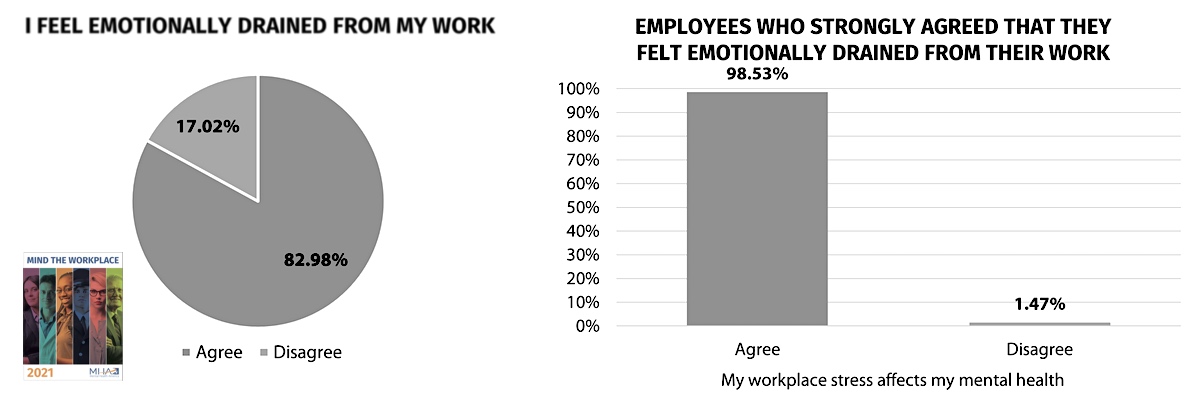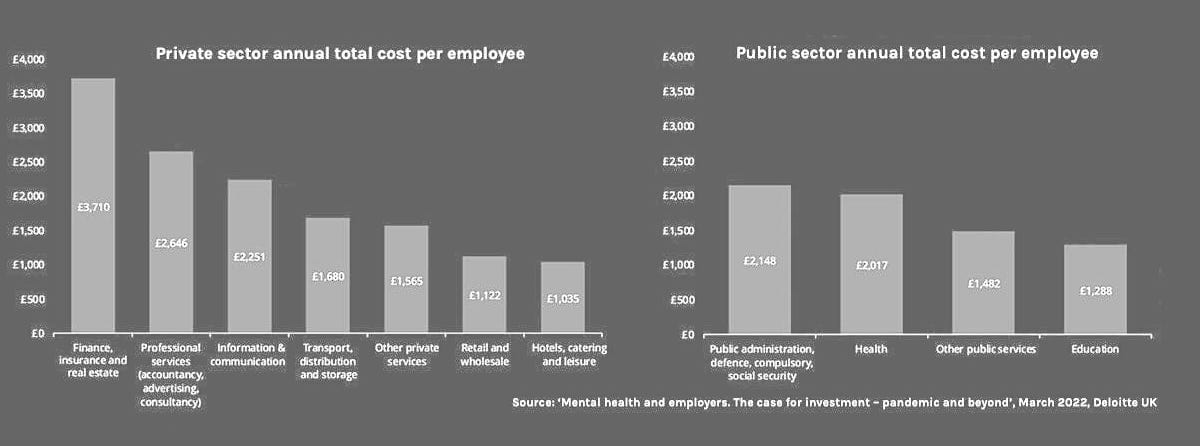In the challenging and demanding work environment full of stressors, it's no surprise that employee stress and burnout have become widespread issues. Due to a lack of strong self-leadership or intrapersonal skills, people experience internal reactions when faced with external pressures.
The constant external pressure to meet deadlines, manage growing workloads, and solve complex challenges can take a toll on most individuals. What can safeguard your well-being is a proactive approach to stress reduction and mental wellness, which enhances your resilience.
Excess stress levels can lead to a range of negative consequences, including decreased productivity, increased absenteeism and cause slowly significant physical and mental health problems.
Recognizing the severity of these issues, many organizations have begun to prioritize employee well-being. Too few realize that the most appropriate option here is to invest in stress management.
The need for efficient stress management is obvious because the 2025 UK Burnout report stated that 91% of UK adults experienced high or extreme levels of pressure or stress during the past year. There seems to be a lack of improvement since 2019 when the 'Cigna 360 Well-being survey' based on observations in 23 different countries was published.
This study pointed out that 91% of workers stated that their colleagues' stress had some meaningful impact on their work results.
The other important revelations were:

Employee stress management courses have emerged as a valuable tool to address reduced productivity and low employee engagement concerns.
Stress reduction courses can help individuals develop sustainable coping mechanisms to manage stress effectively.
Avoiding employee stress and burnout has huge business benefits let's take a closer look!
What are the Benefits of Employee Stress Management Courses?
Employee stress management courses work well when they are designed to provide employees with knowledge about their inner domain. Learning intrapersonal skills and efficient self-leadership strategies allows them to notice stress and manage their individual stress levels.
Efficient stress reduction courses permit:
- Identifying and recognizing stress symptoms: Early detection of stress is crucial for preventing it from escalating into burnout. These courses teach employees to recognize the physical, emotional, and behavioral signs of stress.
- Comprehending the fundamental causes of stress: Separating stress and stressors and understanding the root causes of stress can help employees make changes to their work or personal lives to reduce their inner reactions. No stress trigger matters when your mind is calm and you can apply an aware response instead of subconscious reactivity.
- Developing effective coping mechanisms: Intrapersonal coping mechanisms are efficient personal strategies that individuals can use to manage stress and spot warning signs of burnout. These courses introduce a variety of coping skills, such as becoming more aware of your awareness, finding time to relax and possessing adequate relaxation techniques. Also learning how to lead your own activities in time matters and allows you to take back control.
- Prioritizing self-care: Self-care is essential for maintaining overall well-being and reducing stress. Wellness Orbit online courses encourage employees to incorporate healthy habits into their daily routines, such as regular sleep, exercise, nutritious eating and adequate self-monitoring through self-evaluation tests.
- Learning skills that permit to increase resilience and keep focus: By developing effective coping mechanisms, employees can choose their focus and therefore better manage stress and prevent it from overwhelming them (even in open office environments).
Why are Employee Stress Management Courses Important?
Employee stress management courses offer a range of benefits for both employees and employers. For employees, efficient stress reduction courses improve mental health, increase energy levels, and foster a more optimistic outlook toward work and life.
Mind the Workplace study my MHA pointed out tha more than 82% of employees feel emotionally drained from their work. To restore optimism and reduse emotional and mental draining from work, stress needs to be reduced ASAP!

Stress reduction is also how to avoid employee burnout!
By nipping stress in the bud it just doesn't develop into chronic stress and then from there to burnout and depression.
Employee burnout is 100% preventable by learning stress management skills proactively.
A healthy work-life integration and reduced stress levels can lead to greater job satisfaction and enhanced self-motivation. Taking initiative helps individuals feel less stressed and anxious, enabling them to efficiently accomplish tasks.
Employers equally benefit from employee stress management courses as they observe improved employee productivity.
It is a well-known fact that maintaining focus, concentration, and making efficient decisions are easier when the mind is calm. This inner calmness is convertible to improved employee engagement levels
Stress reduction not only boosts productivity but also results in reduced absenteeism and turnover.
Employees equipped to manage stress are less likely to take sick days or seek employment elsewhere. They become thriving and focused, but it demands conscious effort.
The fact is, only about 21% of employees are actively engaged (see the Gallup employee engagement levels graph from 2025 below) and as a result, most of the people in workplaces aren't engaged However, as the graph below demonstrates, it is possible to see 3X improvements and the best option to see the change is to start with systematic stress reduction courses that improve self-leadership.

According to this Gallup repor alarming 62% are "quiet quitting". They are doing the minimum and are detached from their work mostly as their stress and worry occupy their minds.
Another 17% are "loudly quitting" or actively disengaged and potentially harming team morale. Their undone work is a stressor for others.
In best-practice organizations mind health and caring (self-)leadership are an integral part of work culture and it is boosting employee engagement levels up to 70%.
How to Implement Employee Stress Management Courses?
For the successful implementation of employee stress management courses, organizations should take into account the following factors:
- Choose a reputable stress reduction course provider with a professional trainer(s) offering high-quality training based on real-life experiences. Practical exercises and workbooks should be integral components of such training.
- Ensure universal access to the courses and if possible incentivize employee participation. The most effective stress reduction occurs when the entire team learns intrapersonal skills, leveraging them to enhance well-being and strengthen personal relations and teamwork.
- Encourage self-evaluation to sustain the ongoing stress management initiative. Feedback is crucial for continuous improvement in stress management practices. Regular self-assessment and feedback mechanisms contribute to the long-term success of stress reduction programs.
- Support establishing a culture where employees feel comfortable discussing their well-being and seeking assistance promotes a proactive approach to stress management.
- Linking stress reduction initiatives with overall career development fosters a holistic approach to employee welfare and creates a culture that values both personal and professional advancement.
Experience the free demo training with Dr. Helena Lass on the link below and enjoy self-evaluation with the feedback!
As Deloitte pointed out in their 2022 study, workplace-wide proactive investments in mental wellness can bring up to tenfold ROI!
The same study pointed out that ignoring mental health problems has a high cost.
Most employers are unaware that their annual hidden costs are between £1035 ($1345 or 1150€) and £3,710 ($4820 or 4,120€) per employee as people feel stressed, burn out due to lack of intrapersonal skills and need to restore their health (see the health costs graph by Deloitte in the UK pounds below).

It is up to you to make a change and stop your losses and upgrade your work culture toward a more stress-free direction.
Conclusion
Employee stress management courses represent an invaluable tool for addressing the growing issue of employee stress and burnout.
By providing employees the opportunity to learn intrapersonal skills, they become aware of how to manage stress and how to avoid employee burnout. It is up to employers to compensate lack of mental wellness-related education and reap tenfold ROI from such investments.
You can now foster a healthier, more productive, and more engaged workforce by using Wellness Orbit online trainings. On this site, your team can improve their mind health 24/7 just when they need it the most!
|



.jpg)


